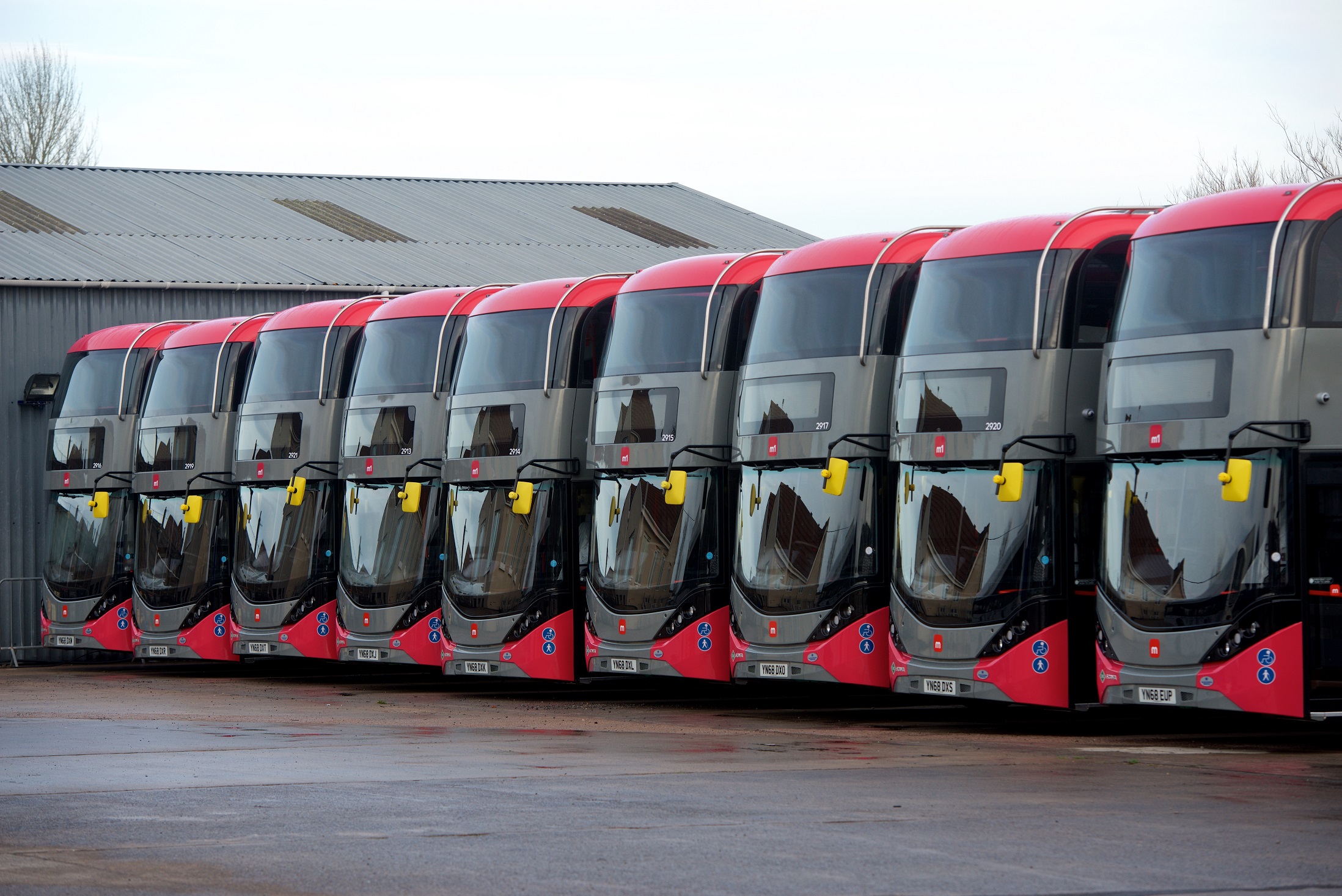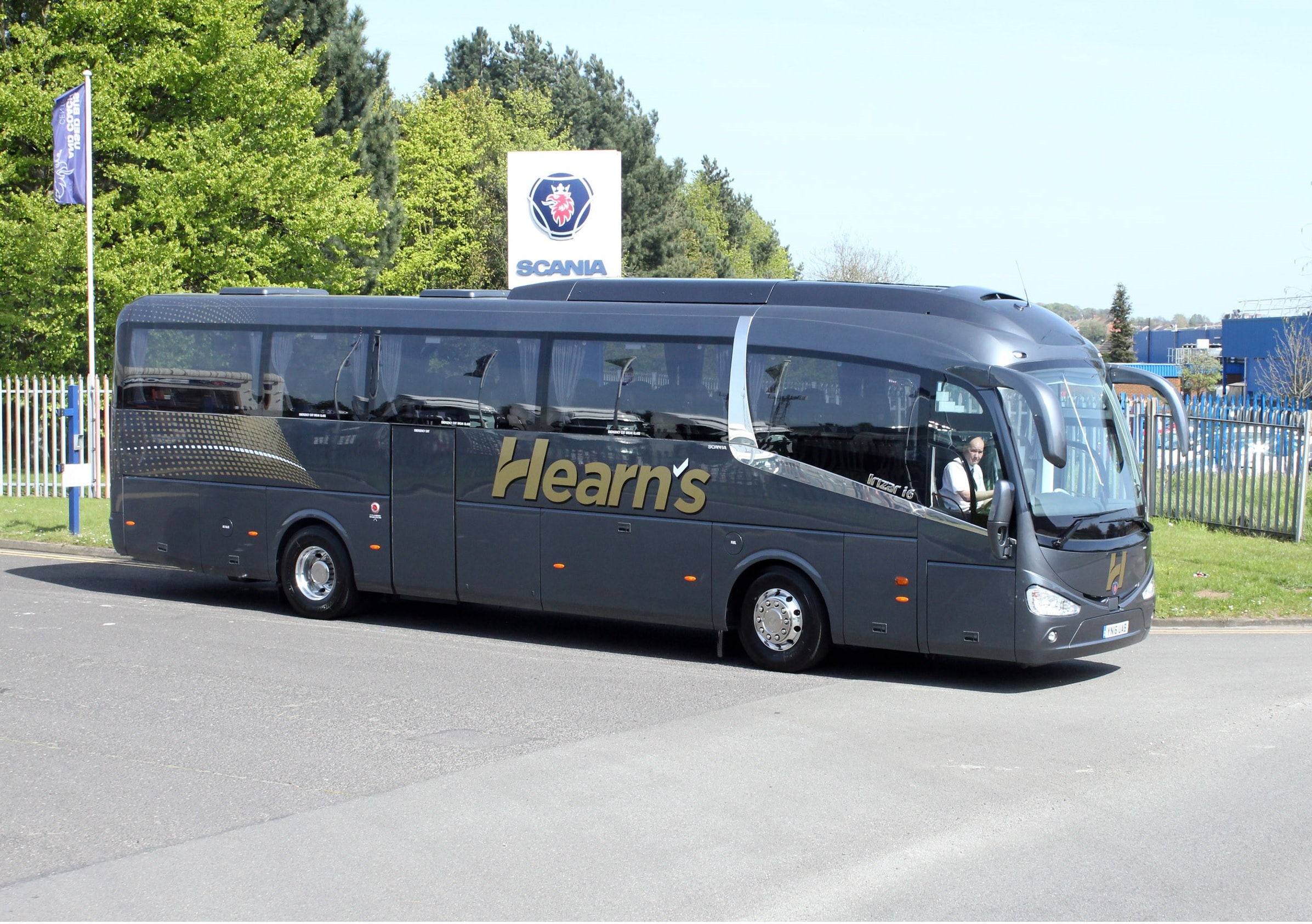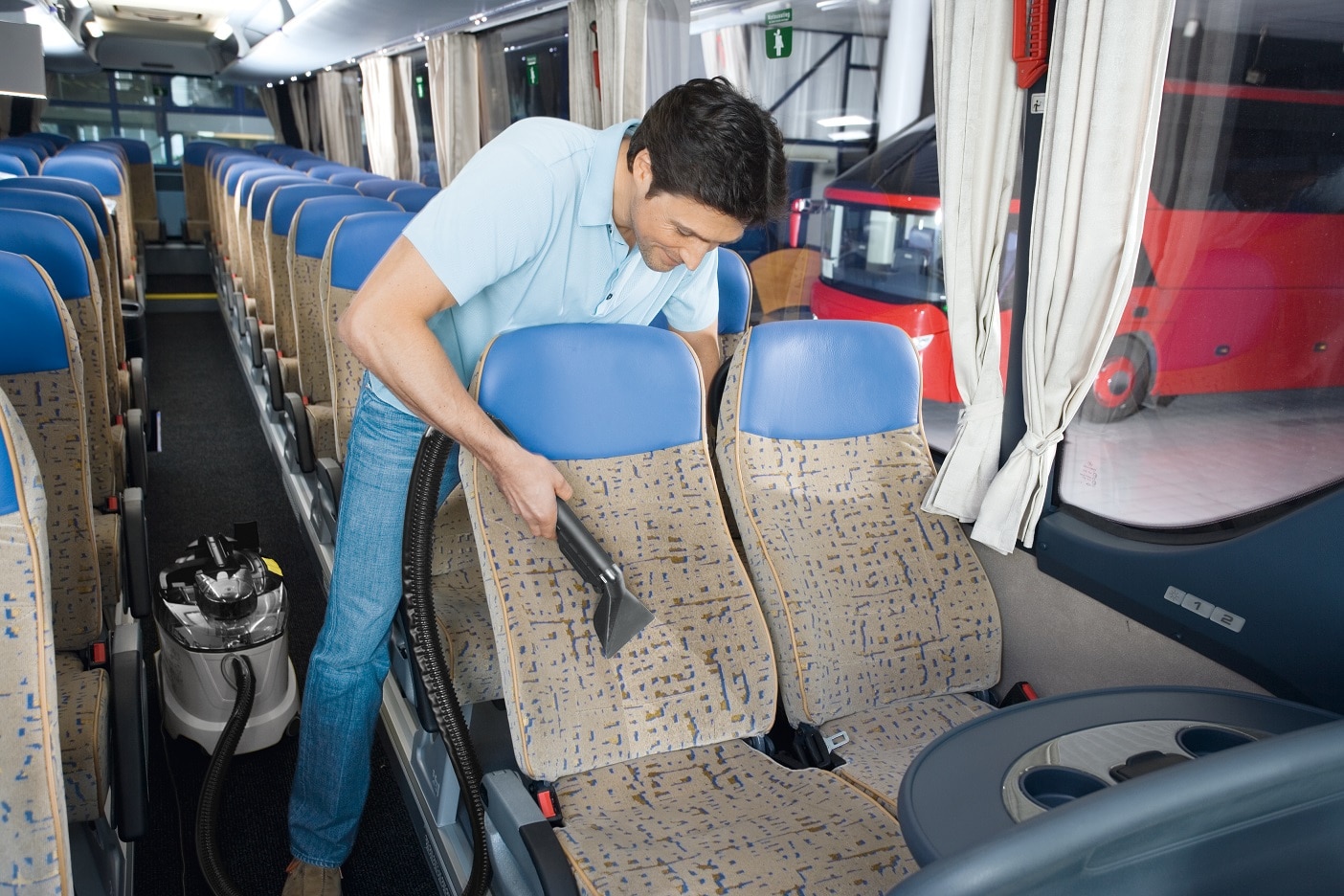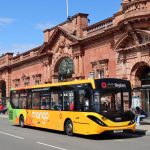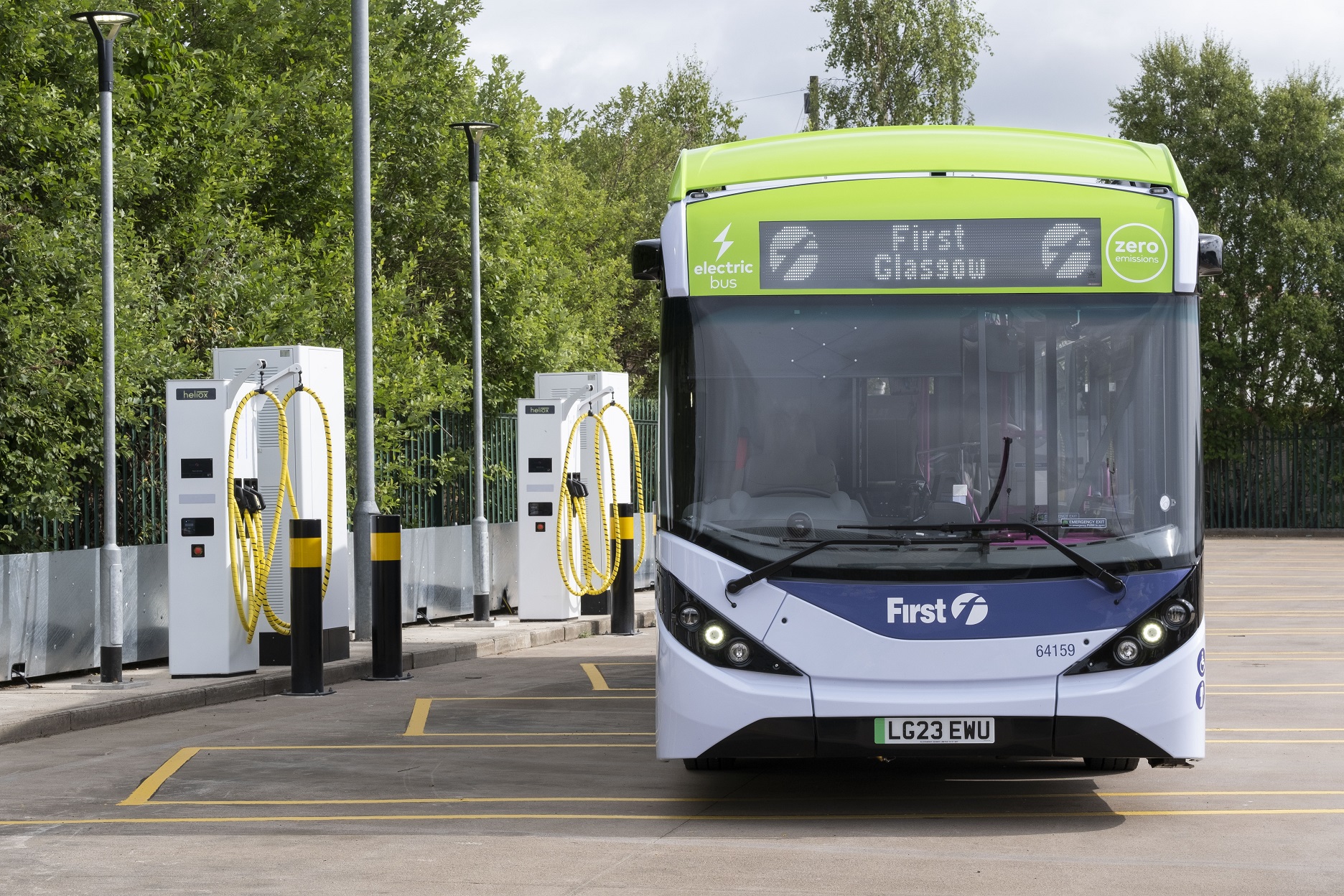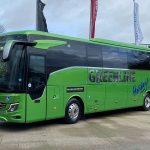It’s long been the accepted phrase for reporting good order, but today there’s a case for replacing the ‘ship’ in Ship-shape and Bristol Fashion with ‘bus’ as the city’s passenger carrying fleet sets new standards for reliable, dependable and – crucially – a biogas-fuelled sustainable transport operation.
Leading the charge is First West of England (FWoE), the area’s principal public transport operator. It provides in excess of 90% of bus services in Bristol, Bath, Weston-super-Mare, Wells and Westbury.
FWoE’s sustainability journey began with a local initiative universally known as the ‘poo bus’ (more of which later) and Metrobus.
Metrobus is a publicly sponsored rapid transport system instigated by the local authorities in Bristol and the surrounding areas. Driven by an ambition to create a faster, cleaner transport system for the travelling public, its passenger carrying operations commenced in 2018 after a lengthy gestation period.
Originally, the idea had been to develop a tramway, but when that proved unfeasible, a bus-based solution was opted for instead.
Infrastructure grant funding helps biogas buses
A substantial £230m government infrastructure grant led to the development of additional bus lanes, bus stops and information systems. But the bulk of the money was invested in highways, including some bus-only roads totalling two and a half miles in all and including several sections of guided busway.

Would-be operators were invited to sign up to Metrobus’ Quality Partnership Scheme, which sets service levels and demands for modern, low-emission Metrobus-liveried vehicles and drivers in Metrobus branding.
FWoE volunteered its services and was duly awarded the m2 and m3 routes, between the city centre and Emersons Green and the city centre and Long Ashton park-and-ride site respectively.
The authorities were keen to see another operator involved. It was eventually decided that FWoE would subcontract Metrobus’ third route, the north-south Bristol m1, to a third party. The company that came forward for this task was Bristol Community Transport (BCT), part of the not for profit HCT Group.
As part of its wider commitment to sustainable development, FWoE stipulated that all BCT buses on the m1 route should operate on biomethane. That condition was imposed by FWoE Managing Director James Freeman, a long-time champion of gas-powered vehicles.
Strong biogas bus experience to build on
James’ relationship with Scania and its gas buses dates to the time that he was Chief Executive Officer at Reading Buses. In April 2013 it became the UK’s first operator to put gas-powered Scania buses into service.
Initially, 20 Alexander Dennis-bodied single-deckers were introduced into the fleet, followed by a further 14 in 2014. In the same year, Reading Buses also became one of the first UK operators to install a gas refuelling station on its premises.
“Bristol City Council was watching what we at Reading Buses were doing very closely,” says James. “It was among the first to visit us as the programme got underway. It was extremely interested in gas as a road fuel.

“In late 2014 I decided to move west to take up the reins at FWoE, where, as things turned out, part of my work would be to explore the potential of gas-powered operation in the Bristol area.”
The opportunity for FWoE to test gas power was soon in coming.
“At the time, Scania had a dedicated gas bus demonstrator, which we took on a long-term trial.
“Powered by biogas produced from human waste in an anaerobic digester by Geneco, an offshoot of Wessex Water and owner of the UK’s largest sewage works at Avonmouth, we dubbed the vehicle the Poo Bus. It had a suitably appropriate livery,” says James.
“The effect was dramatic. The Poo Bus and its graphic vinyls attracted unprecedented attention both locally and nationally. But most of all, the public understood that using waste in that way was a positive step forward in terms of a sustainable transport operation.
“We ran the bus throughout 2015, the year in which Bristol was European Green Capital, fittingly on our number 2 route. The vehicle happily trundled back and forth without any drama. The trial was immensely successful, both from an operational point of view and in terms of creating awareness.”
Biogas bus hopes for Metrobus ‘from Day One’
James continues: “It had been our ambition to introduce gas buses onto the Metrobus services from Day One, but unfortunately an OLEV grant from the government was not forthcoming at the time. As a result, the first batch of 25 buses we ordered for it had Euro VI diesel engines.
“While still at Reading Buses, I had been involved in a ground-breaking project with Scania and Nottingham City Transport to develop gas-powered double-deck buses. So we altered the specification of the last of our batch to be a biomethane-powered double-decker. We put it into service during 2017.
“Simultaneously, we reapplied for and won a Low Emission Bus Scheme 1 (LEBS1) grant for £4.8m to go towards the funding of 98 gas buses and the infrastructure required to fuel them.
“That was why we needed BCT to operate biomethane buses. A proportion of the funding was redirected accordingly to the 21 Scania ADL Enviro400 City double-deckers that run today. BCT also instituted a refuelling station and since 2019 has been providing the system in daily operation.
“Now we are in the process of having a further 77 Scania ADL gas-fuelled double-deckers delivered and a second, larger refuelling station is being installed at our Lawrence Hill depot. That is great news for the Bristol area and we very much look forward to seeing all those vehicles in service.
“Furthermore, with the infrastructure in place, the argument for introducing even more biogas buses is simple to make. From a cost point of view there are significant savings to be had. In fact, we are already seeing fuel returns 25% ahead of Scania’s own predictions.”
Political will is there for biogas
“Looking ahead, we very much see a great future for biogas-powered buses. There is certainly the will for sustainability from a political perspective, and we want to influence people to use buses more,” James adds.
“People make lifestyle choices around transport, so we have to find ways of providing this cost effectively and in an environmentally sensitive manner. There is a lot of talk about electric vehicles, but right now they’re expensive and not terribly reliable.

“On the other hand, biogas offers an immediate answer. It’s a carbon neutral solution that is available here and now.
“Most of all, it appeals to people. Today, we are running on virtual biogas produced from food waste.
“Like the human waste model, the public gets it. You can make the green connection in people’s minds easily. That is really important.
“In summary, biogas is practical, fundable and effective. It works out of the box.”
A product with a pedigree
FWoE’s partnership with Scania also extends into conventionally fuelled vehicles. James explains why.
“Scania is one of only two manufacturers that offer double-deckers for guided busways. My previous operating experience of the marque drew me towards it in any case. Scania’s collaborative and innovative approach singles it out as an organisation to do business with. There is no question of the quality and reliability of its products.
“In 2016, when we were unable to secure a gas funding grant, we ordered 25 diesel-powered Scania buses instead, one of which was subsequently changed to biogas, to operate on the guided Metrobus routes.
“One of those services has a low bridge, so it was necessary to specify a bus about 30cm lower than the norm. That presented no problem to either Scania or ADL. They happily accommodated our request.
“So successful in operation have these vehicles been that we ordered a further nine when we won a new shuttle contract with Bristol Airport. Those, too, are performing well. In fact, our Scania buses have now run in many places, including the hilly terrain of Bath. They are particularly good there.
“The vehicles are also extremely well engineered, and they are reliable and durable.
“Moreover, they are very much liked by drivers and passengers. In our experience, it’s true to say that once you give someone a Scania, they just don’t want anything else.”













